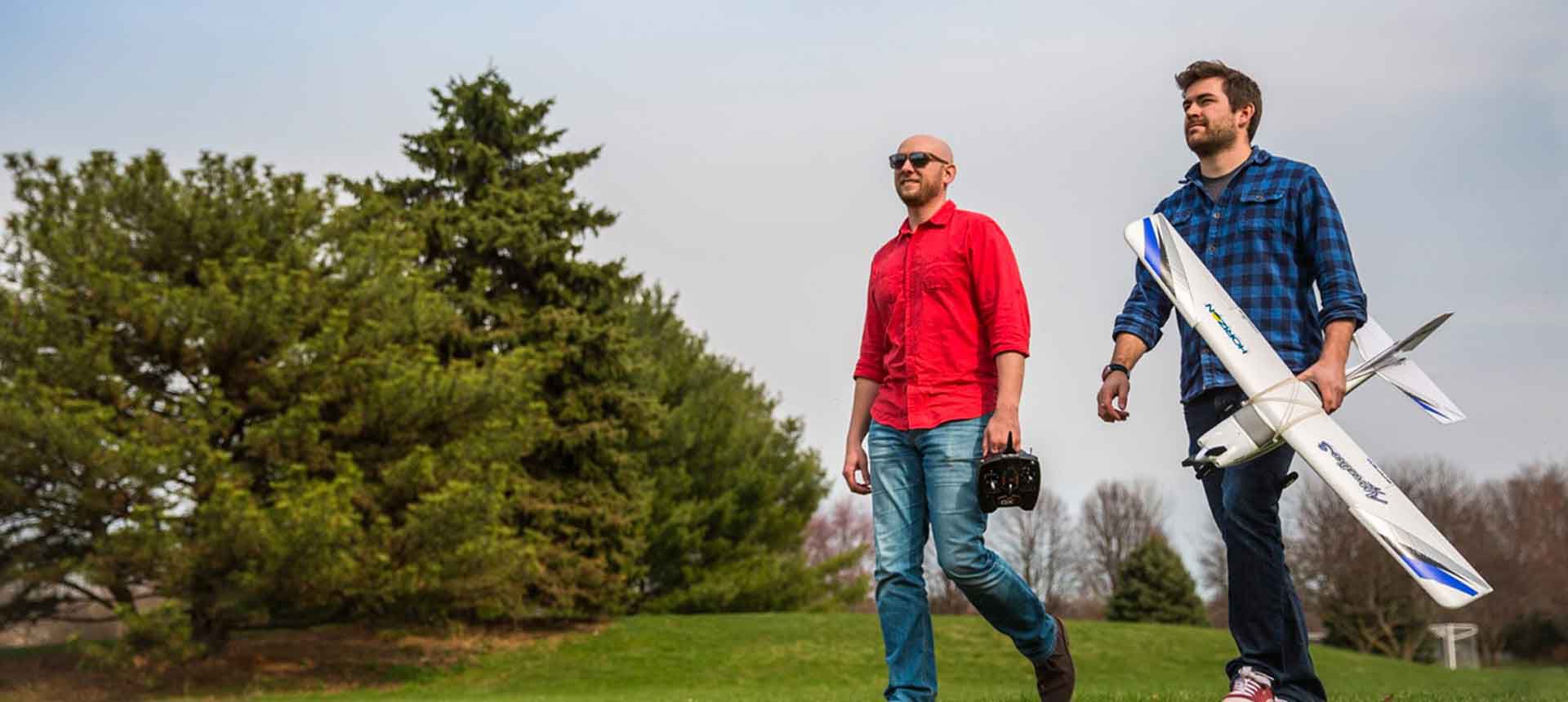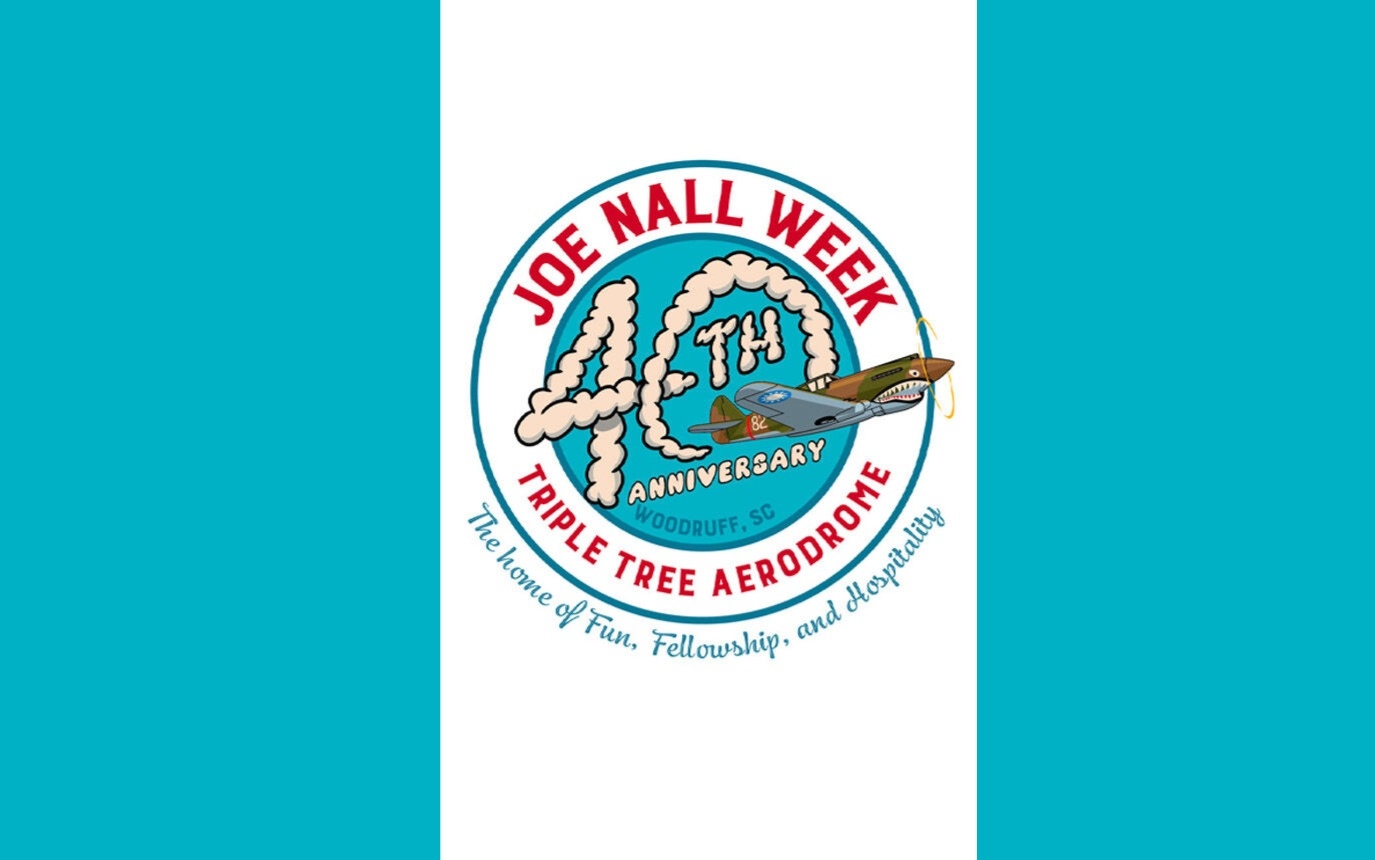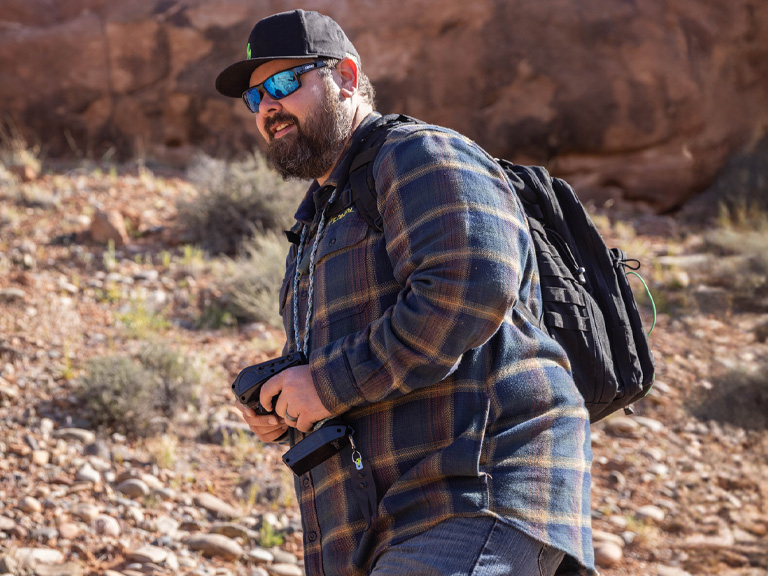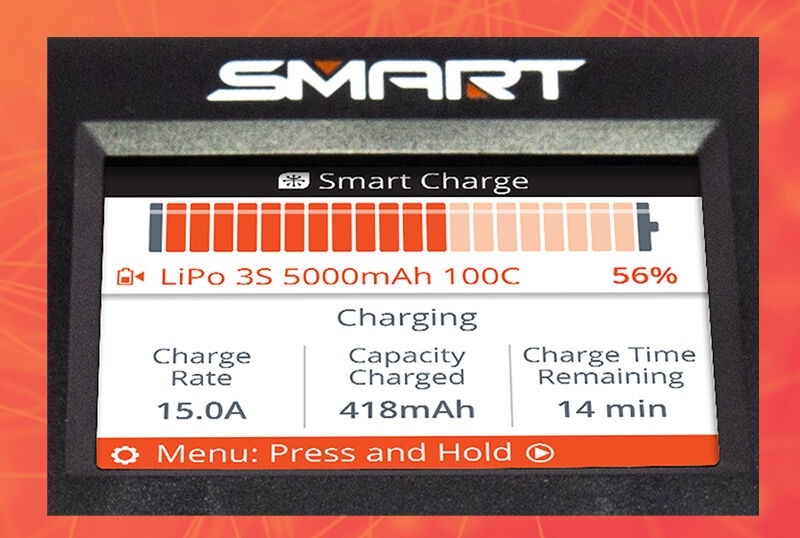
Do I have to register my RC plane with the FAA?
Posted: 3/31/23
Do I have to register my RC plane with the FAA?
The quick answer to the common question, “do I have to register my RC plane with the Federal Aviation Administration (FAA)?” is that it is, unfortunately, the wrong question. The right question is, “do I have to register with the FAA to fly radio control aircraft?” The answer to that question depends on what kind of aircraft you own.
If you own an RC aircraft that weighs less than 250 grams, like the E-flite® UMX™ Radian® or an E-flite® UMX™ Night Vapor, there’s no need to register with the FAA. However, anything larger than 250 grams must be registered, and unmanned aircraft weighing 55 pounds or greater require more extensive paperwork.
Simply put, you technically aren’t registering your RC plane, RC heli or drone. You are registering yourself and putting your number on the appropriate aircraft. That’s a significant difference if you have more than one aircraft. All aircraft must be registered, except those that weigh 0.55 pounds or less (less than 250 grams) and are flown exclusively under the Exception for Recreational Flyers.
What are the Rules for Recreational Flyers?
The Exception for Limited Recreational Operations of Unmanned Aircraft is the law that describes how, when, and where you can fly aircraft for recreational purposes. Following these rules helps keep people, your aircraft, and our airspace safe:
- Fly only for recreational purposes (personal enjoyment).
- Keep your aircraft within the visual line of sight or use a visual observer who is co-located (physically next to) and in direct communication with you.
- Give way to and do not interfere with other aircraft.
- Fly at or below FAA-authorized altitudes in controlled airspace.
- Fly at or below 400 feet in uncontrolled airspace. Note: Flying aircraft in restricted airspace is not allowed. Pilots should always check for airspace restrictions prior to flight on the FAA B4UFLY app or the UAS Facility Maps webpage.
- Take The Recreational UAS Safety Test (TRUST) and carry proof of test passage when flying.
- Have a current FAA registration, label your aircraft on the outside with the registration number, and carry proof of registration with you when flying.
- Do not operate your drone in a manner that endangers the safety of the national airspace system.
The FAA requires most unmanned aircraft in US airspace to have the registration number of the pilot on the aircraft. The good thing is registration is easy and inexpensive.
Information Needed to Register
- Physical address and mailing address (if different from physical address)
- Email address
- Phone number
- Make and model of your RC aircraft or drone
- Specific Remote ID serial number provided by the manufacturer (if applicable)
- Credit or debit card
Registration Fees
- Registration for small aircraft that are less than 55 pounds (part 107 type) costs $5 per aircraft and is valid for three (3) years.
- Registration for recreational flying (Exception for Recreational Flyers type) also costs $5 and is valid for three (3) years.
- Once registered, a registration cannot be transferred between types.
- You'll need a credit or debit card and the make and model of your aircraft handy in order to register.
Registration Requirements
- 13 years of age or older (if the owner is less than 13 years of age, a person 13 years of age or older must register the RC aircraft or drone)
- A U.S. citizen or legal permanent resident.
- For foreign operators, FAA will consider the certificate issued to be a recognition of ownership rather than a certificate of U.S. aircraft registration.
Where to Register
- Register online at FAA Drone Zone, (drone must weigh less than 55 pounds)
- Register by mail (More information is available at https://www.faa.gov/licenses_certificates/aircraft_certification/aircraft_registry/ua)
Once you register your aircraft, you will receive an FAA registration certificate. You must have your registration certificate (either a paper copy or a digital copy) in your possession when you fly. If another individual operates your aircraft, they must have your aircraft registration certificate (either a paper or digital copy) in their possession. Federal law requires aircraft operators who are required to register to show their certificate of registration to any Federal, State, or local law enforcement officer if asked.
Failure to register an aircraft that requires registration may result in regulatory and criminal penalties. The FAA may assess civil penalties up to $27,500. Criminal penalties include fines of up to $250,000 and/or imprisonment for up to three (3) years. When your registration expires, you will need to renew your registration before flying again.
The FAA requires that you mark all aircraft with your registration number before you fly them.
Here is how to label your aircraft:
- Must be maintained in a condition that is legible.
- Must be affixed to the small, unmanned aircraft by any means necessary to ensure that it will remain affixed for the duration of each operation.
- Must be legibly displayed on an external surface of the small, unmanned aircraft.
Right now, pilots registering with the FAA in order to fly their RC aircraft need to understand a list of safety rules, pass the TRUST test, pay the registration fee, download the registration certificate, and add the registration number on all their aircraft.
As always, there are several rules pilots need to follow, including not flying in restricted air space or using camera drones to spy on others. It’s essential to be flying legally, no matter where you fly.
For more information, check out the FAA Drone Zone, which has the latest information about registering your aircraft.
Shop the Story
Related Articles

Horizon Hobby Attends Joe Nall Week 2022
Joe Nall Week 2022 is the 40th Anniversary of this amazing RC air event. Horizon Hobby will have a booth and be giving demonstrations of our RC airplanes.
Learn More

Examining Ten Radio Control Maintenance “Best Practices”
A deep dive into ten RC best practices including debunking some common RC myths.
Learn More

How to Charge RC Batteries
How to Charge RC Batteries: A Beginner’s Guide to Charging LiPo and Other RC Batteries
Learn More